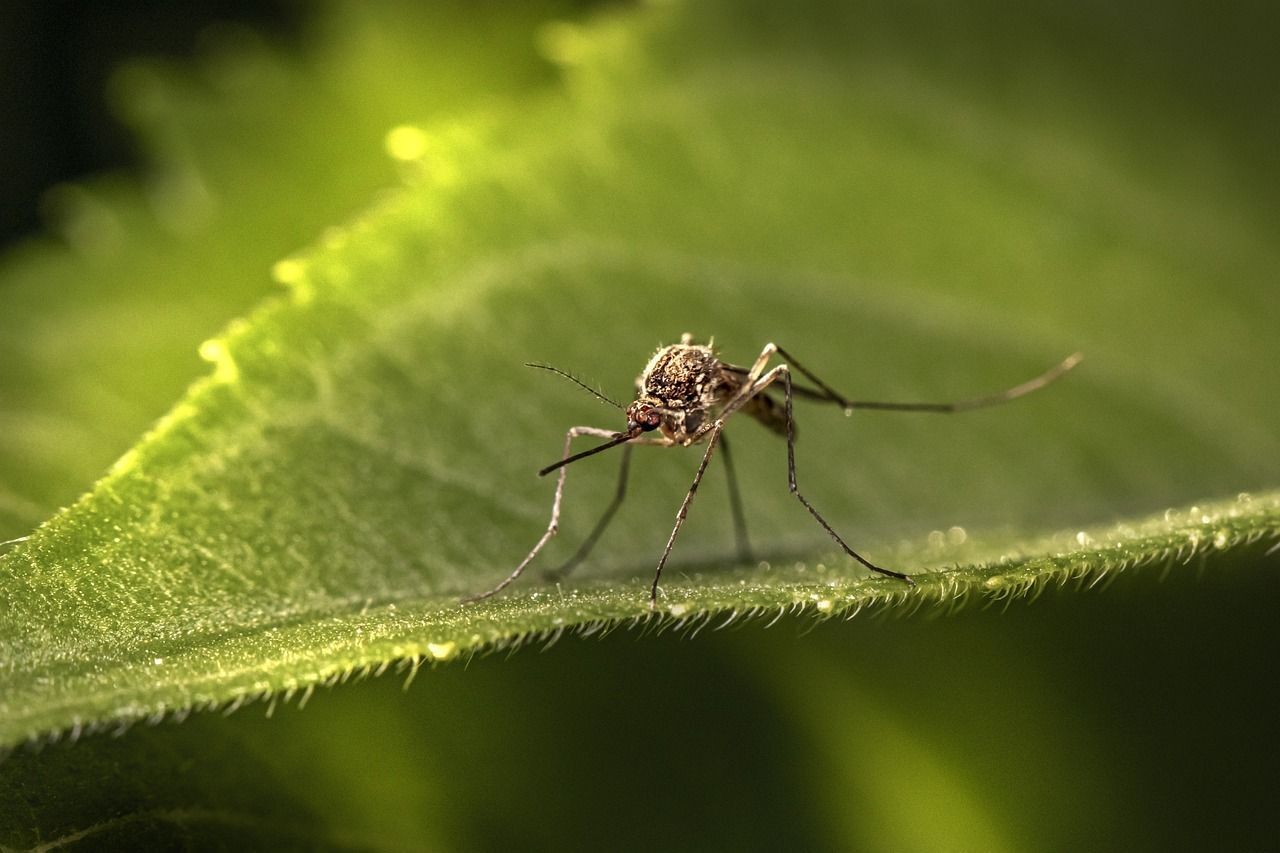
Summertime means the return of pesky bugs and critters, and mosquitoes are often at the top of this unwelcomed list.
To prevent uninvited guests from ruining your backyard cookouts and gatherings, you might be tempted to hire one of the many commercial mosquito spraying services that often advertise their services with cardboard signs posted on public roadsides (often in violation of local bylaws).
While the desire to eradicate mosquitoes is understandable, spraying your yard with these products messes with the natural food chain and has a much larger impact than you may realize.
The trouble with mosquito sprays is that they are not selectively toxic to only mosquitoes. According to the National Wildlife Federation, the most widely used residential mosquito sprays are also highly toxic to native pollinators such as bees and butterflies, and they can pose risks to pets and people.
Most residential mosquito control companies use insecticides known as pyrethrins. These chemicals are derived from the chrysanthemum flower*. A more commonly used synthetic version of pyrethrins is a pyrethroid*.
There is no way for companies to spray for mosquitoes without also killing other insects, including bees, butterflies, caterpillars, ladybugs, dragonflies, and other beneficial insects*. The vast majority of backyard birds (96%) rely on insects as the exclusive food source for their babies*. So when you spray your yard for mosquitoes, you are also killing off that food source and making it more difficult for birds to successfully raise their hatchlings*.
Mosquito spray use has become more prevalent as mosquito season has lasted longer in Massachusetts and other parts of the country, thanks in part to climate change. Milder winters give mosquitoes a higher chance of survival into the warmer season, and wetter summers with higher rainfall totals provide ample breeding grounds for mosquitoes in the form of standing puddles and other bodies of water.
The Domino Effects of Mosquito Sprays
Mosquito sprays cause immense harm to the environments that they are used in because they are indiscriminate. These sprays kill nearly all bugs and insects that they come into contact with.
While nobody enjoys getting a mosquito bite, is spraying our yards with a cloud of toxic chemicals and killing any insects in its wake really an appropriate reaction? Insect survival, namely that of bees and butterflies and other pollinators, is essential to the continued health and wellbeing of not just our beautiful backyards, but our world as a whole.
Endangering our pollinators also puts our crops and economies at risk. And our pollinators are in danger. More than 40% of insect species worldwide are threatened with extinction, according to the Biological Conservation journal. A few years ago, thousands of monarch butterflies were found dead after an area of Fargo, ND was sprayed. Similar stories of insecticide damage are popping up all over the country.
Insects aside, mosquito sprays can also harm marine life, pets, and children. As sprays are released, water runoff can wash these chemicals from yards into storm drains and waterways where they poison fish and crustaceans. Pets exposed to the pyrethroids found in mosquito sprays can experience vomiting, diarrhea, lethargy, and other symptoms. Lastly, children and infants are also susceptible to negative effects if exposed.
Non-toxic Alternatives
Before you stock up on non-toxic remedies, address your backyard space through early intervention and source reduction. This helps decrease the chances mosquitoes will have to breed and grow within your backyard.
You can do this by removing and permanently destroying standing bodies of water that serve as mosquito breeding sites. The next time your town experiences rainfall, observe where puddles form in your backyard. Is there a sunken portion of your yard that you could remedy? Do you leave empty buckets or pots that collect rain? Keep an eye on where these breeding grounds develop and then move to rectify them.
One of the best and simplest non-toxic tools to combat mosquitoes? A fan! Mosquitoes are notoriously poor fliers and typically fly low to the ground, so place a few knee-level fans within your backyard, particularly around your patio or deck if that is where you are gathering. Your guests will enjoy a nice cool breeze and the mosquitoes will remain at bay.
Other popular non-toxic solutions include the use of citronella candles and DIY natural sprays using essential oils. However, if you are not a fan of strong scents, you might want to consider some odorless heat or light-based alternatives.
Recently The New York Times’ Wirecutter picked the six best mosquito control gear based on 65 hours of research. All are sprayless and nearly all are odorless. Lastly, mosquitos typically come out at night when the temperatures are a bit cooler. With that in mind, wear longer-sleeved clothing when you’re outdoors in the evenings to ward off the bugs.
*Source: National Wildlife Federation: What You Need to Know Before Spraying for Mosquitoes.


